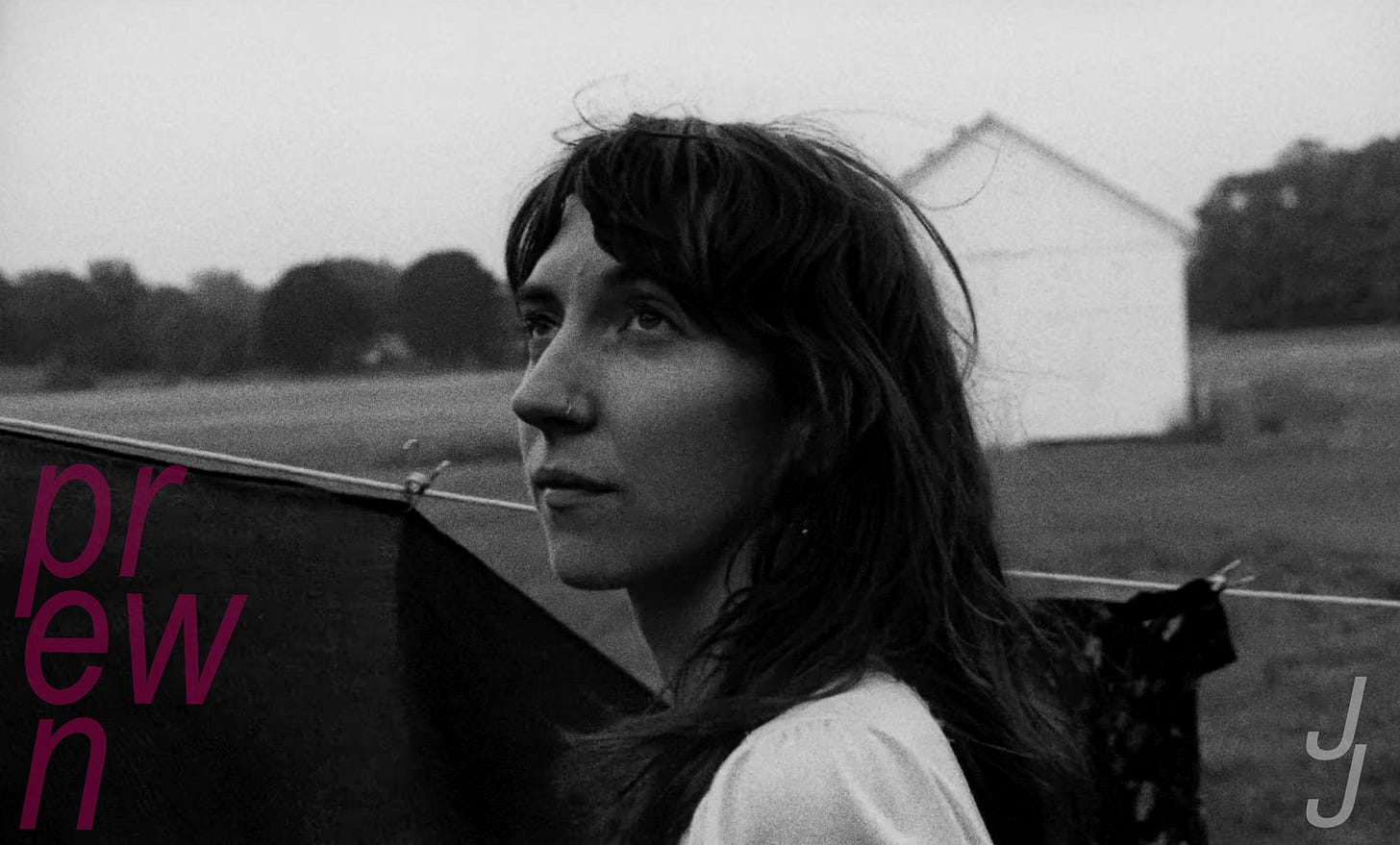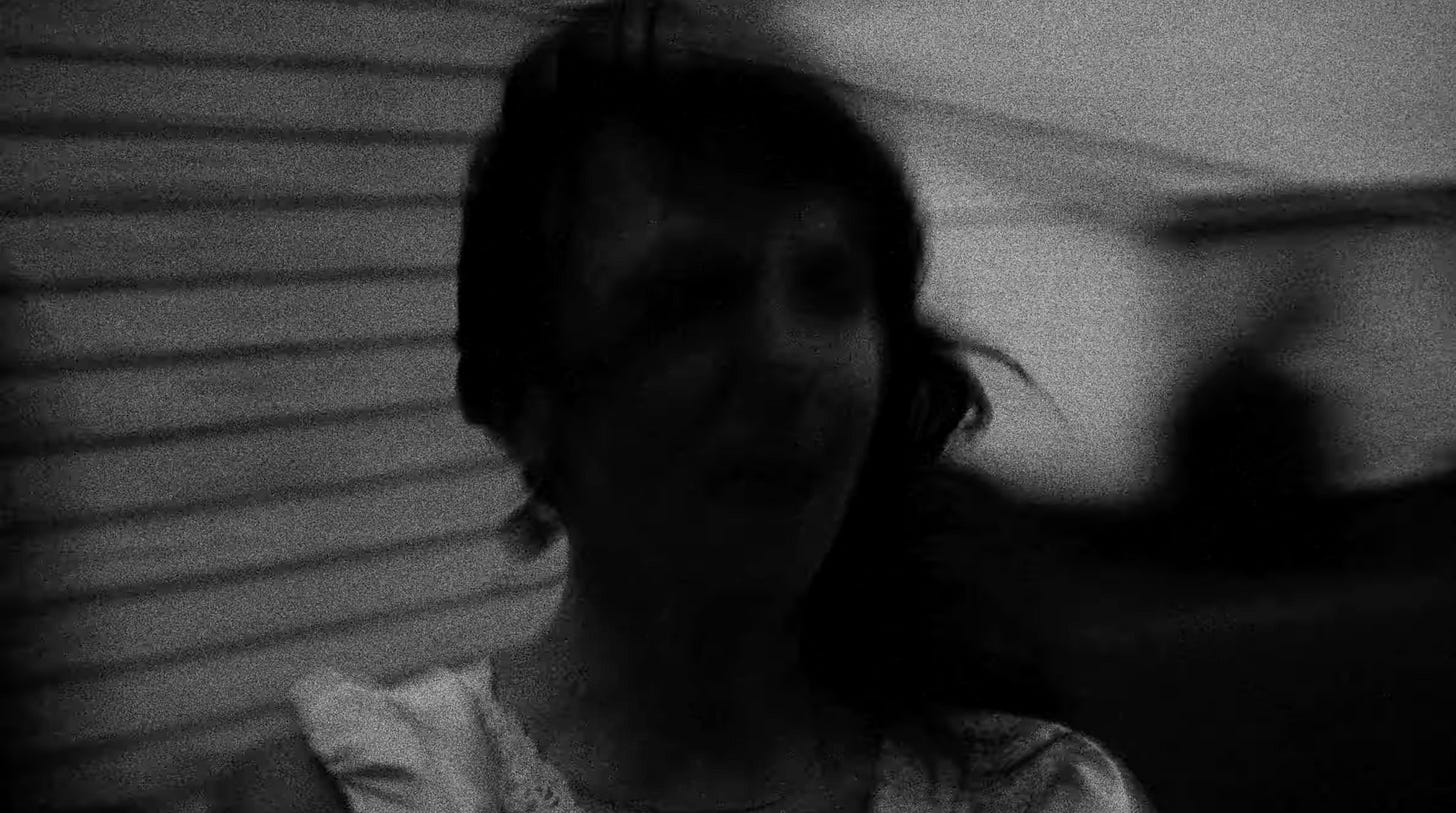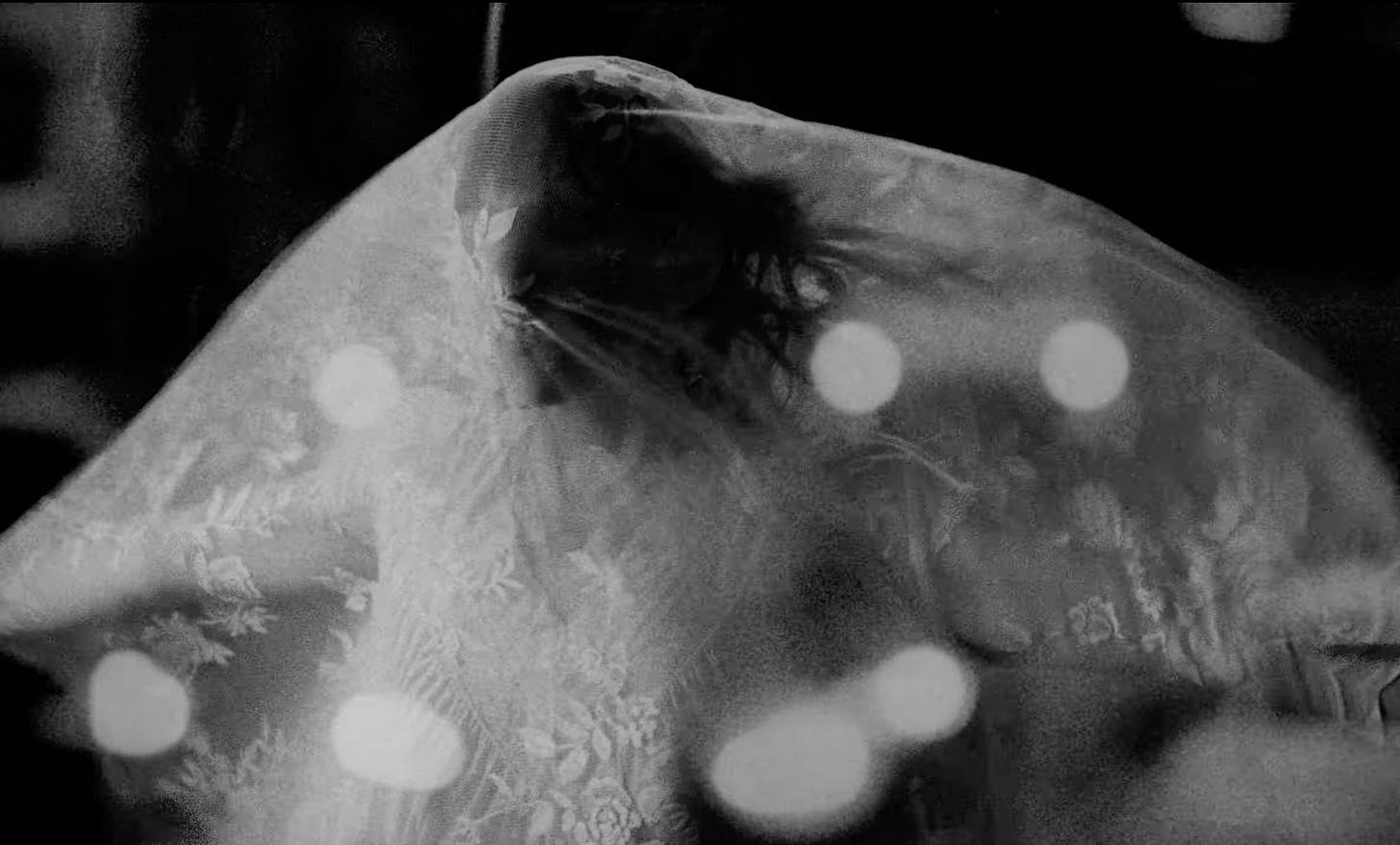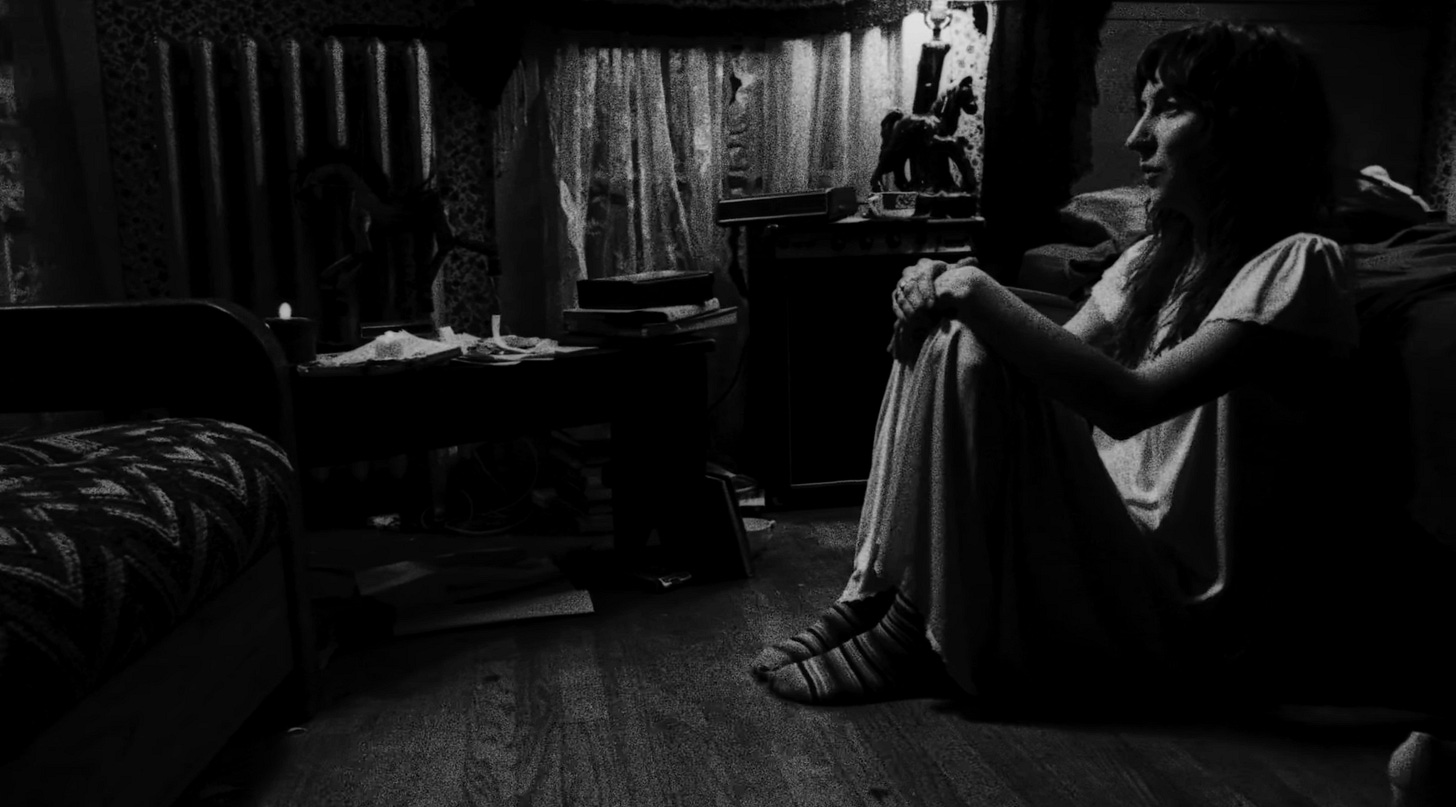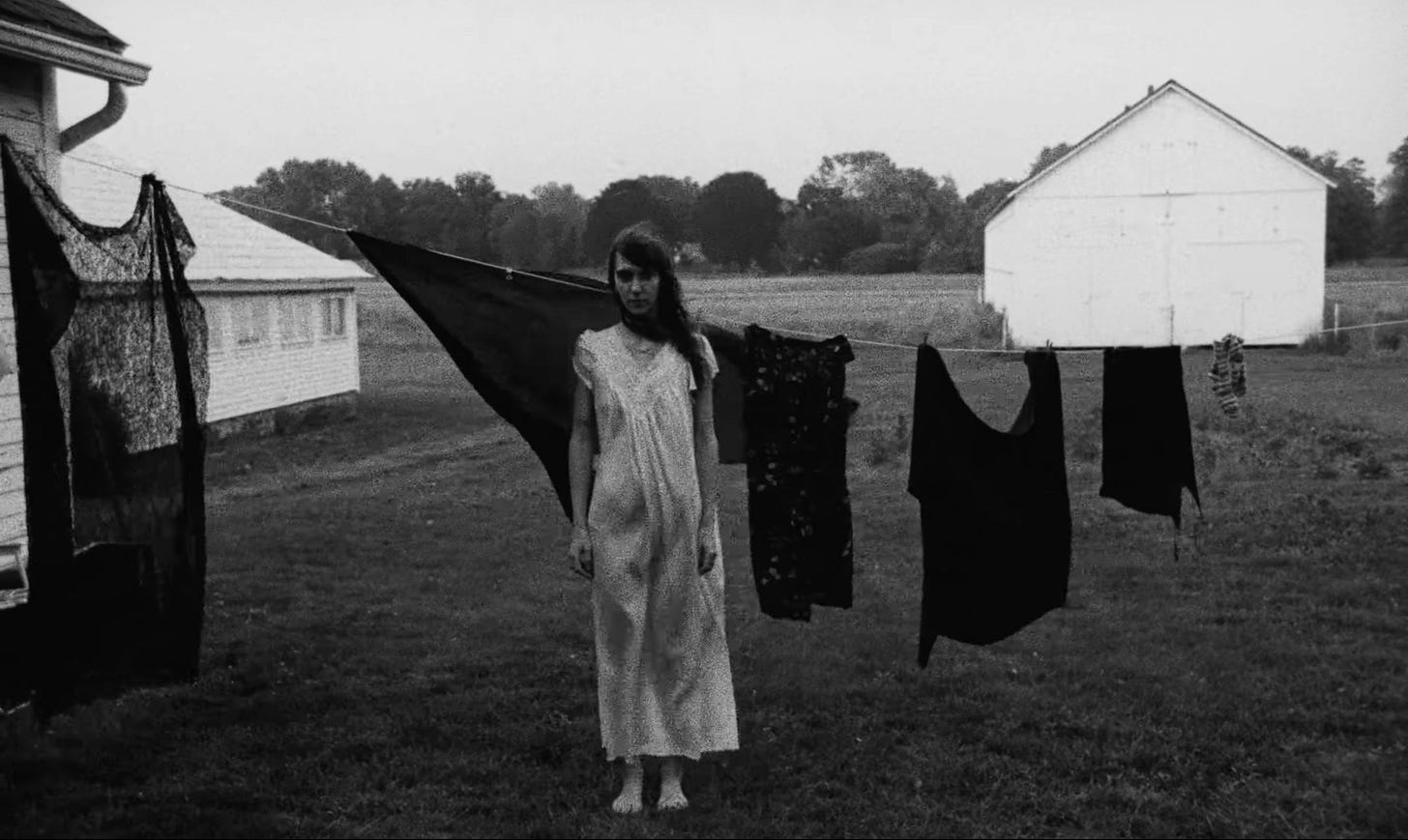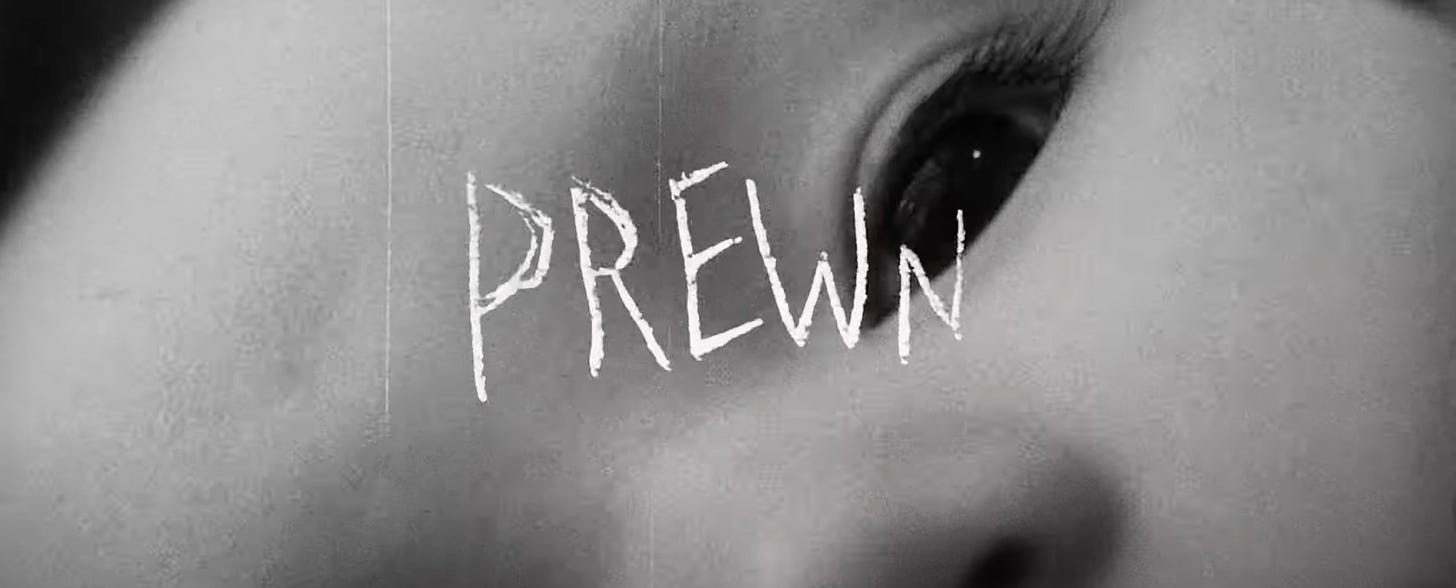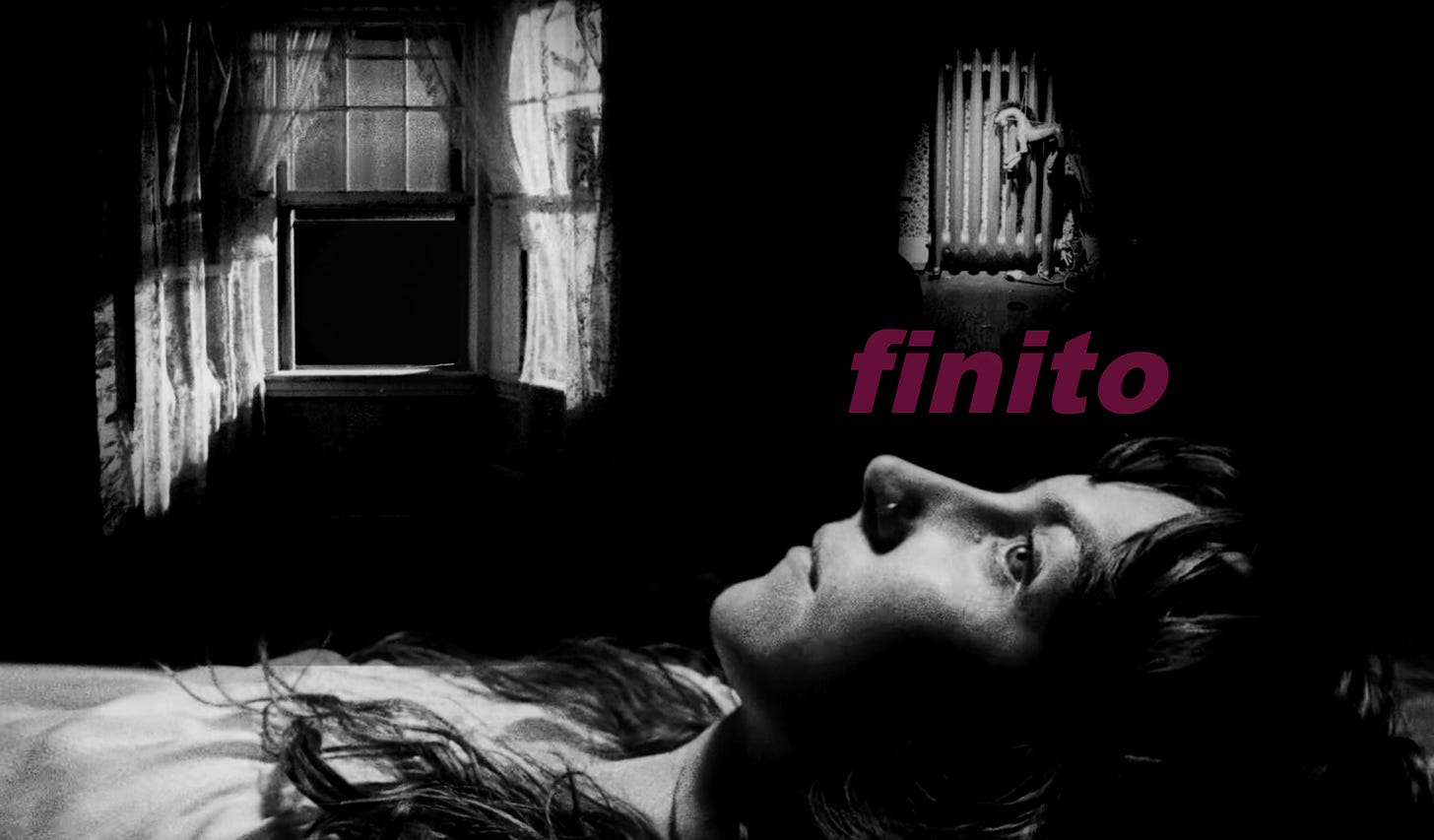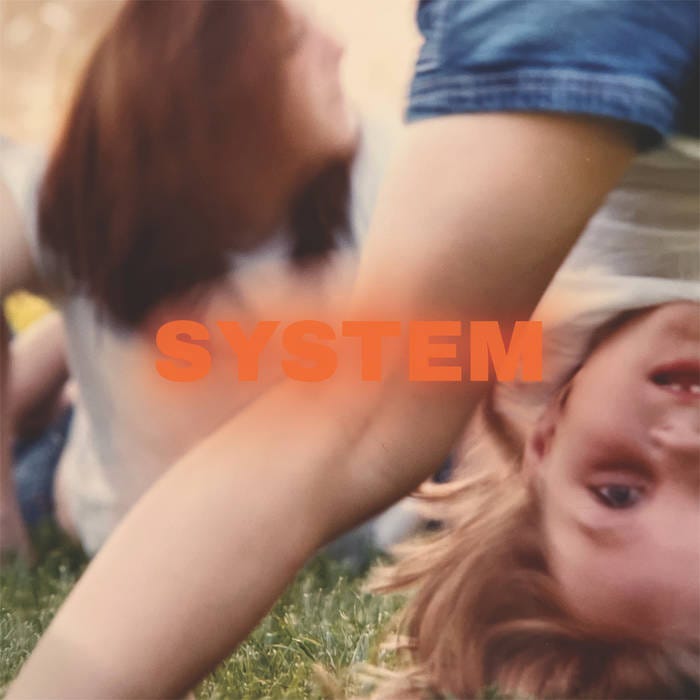Prewn & The Purity Of Not Knowing
On her upcoming record, "System," Izzy Hagerup is more than misery's best friend.
Izzy Hagerup isn’t scared of the dark, and neither are you.
Following Prewn’s critically celebrated debut, Through The Window, Hagerup extends her sonic curiosities on the upcoming album, System, through dense layering, devastating string intros, pulsing synths, dreamscape drum machines, and distorted guitar parts that ring out with a violent edge.
The album’s sound breathes life into haunting lyrical images: sniffing flowers and snorting bugs; a dirty dog washed up on river rocks; heaven, hell; liquid falling from the ceiling, making rivers on the counter; boots in a bloody mess.
But despite the darkness, the 28-year-old singer-songwriter conjures a thoughtful balance of pain, wonder, and bliss throughout the record, reframing the dichotomous weight of disordered organization, and the structures and systems in which we all dwell.
The questions living within Hagerup’s new record — What does it take to survive reality? How do you decipher the lows without sinking? — can be answered by her own quest to write, record and assemble daring, heartfelt songs like these.
In this interview, Hagerup and I discuss what went into System, and so much more. Enjoy.
You were in Northampton for years. What prompted this recent move to Los Angeles?
I needed the intensity of going somewhere I wouldn’t have the comfort of knowing people. I always said I would never live in LA, and then one day I wondered, “But what if I did?”
That’s what I used to say about New York, but now I’m here. And it’s been good, and also really bad.
That’s part of why I did this, too. The bad is important!
I can feel that when I listen to your songs. They take on anxiety, misery, heartbreak, etc. How do these themes play into your definition of a “system”?
Well, the title track is probably the most vulnerable and straightforward song on the record, which hints at a capitalist, patriarchal, self-absorbed society. All of these songs represent different perspectives on the oppressive systems we live in.
I wanted to ask you about writing from different perspectives. On “But I Want More” off your debut record, you embody the POV of your dad struggling with Parkinson’s and it hits hard. Did you play around with this approach on System?
Writing from other people’s perspectives can help me practice getting into someone else's head. System feels more personal, and written from my own personal vantage point, but there are songs like “Dirty Dog” and “Cavity” that seem to emanate from someone else, or some freaky creatures.
I’ve noticed the recurrence of some horrific imagery throughout the record.
My music does tend to gravitate towards the freaky and the nasty. There’s a nastiness to life. I like to weave that in with the sweetness of it.
I love how visceral and corporeal your lyrics are — each song is a living, breathing thing.
When I write I’m usually unaware of what I’m doing, but I guess that’s true; swallowing, bleeding, and hunger come up a lot.
Do you feel like having less awareness while writing leads to better songs?
Definitely. That’s the ultimate key to writing anything that feels authentic and honest and a little beyond myself. I struggle with writer’s block pretty much constantly; I’m always chasing “the flow state” — when I’m outside my mind.
Are there any methods you use to channel that?
I don’t have much of a strategy, but I want to start approaching music-making with more tact. My current method is randomness surrounding a desire to play music and write and every once in a while I’ll experience that flow.
Were you able to access the flow state on this record?
I rarely write anything when I’m out in the world, but with “Easy,” the opening track, I came up with most of the lyrics on a hike in the mountains and kept singing them to myself so I wouldn’t forget. I was in a really good mood, which is rare.
It’s rare that you’re in a good mood?
While writing. I tend to make my favorite songs when I’m a little miserable.
I wrote the first part of “System” when I was in Japan, a place I’d always wanted to go. But I was a depressed at the time and couldn’t see past my own walls. I had this melody in my head and the lyrics just emerged while I was standing in a busy train station in Tokyo.
That’s cool to hear, especially because that song struck me as uplifting despite the lyrics about being plagued by fear and misery. There’s a real balance of beauty and darkness — is this a theme in your songwriting?
Yes, for sure. Sometimes I want to mask some of the darkness, but they’re just inherently intertwined, light and dark; you can’t have one without the other.
When I reposted the “System” music video on Facebook, my aunt commented something like, “You’ve had a hard couple years, maybe you should try something new.”
Like, is my music too dark for you, Ant Cindy?
That’s relatable.
It’s how I also approach life: I can get pretty dark, but I’m always looking for the silver lining in things. Sometimes I have the strength to live in that, and sometimes when shit’s really fucked, the lightness seems distant, but I’m still aware of it.
Do you ever find yourself writing “happy” songs?
I’d like to get to a point where I’m writing some songs that lean more to the lighter side, but it’s naturally easier to write about the harder, darker things because they demand my attention.
When I’m all happy and having a good time, I don’t have as much necessity to write.
Yeah, makes me think of Jeff Tweedy from Wilco, who always says you don’t need to be suffering to write great songs, but he wrote some of his best songs when he was all fucked up.
The crazy can help.
Compared to your first album, Through The Window, these songs sound even more complex, with more layers, and more instrumentation — like the haunting strings and wonky synthesizers. How has your recording process changed?
I get really attached to my demos, so now I try harder to imagine how those songs would go out and I record with a little more attention to detail.
I’ll usually find a way to incorporate whatever instruments are in the room I’m recording in, like the synth on this record. It’s the randomness that ends up defining the sound on System.
Would you call your recording process playful?
Yes. Like on “Dirty Dog” or “Commotion.” Or even “Cavity.” I was having fun with the synth and not taking it too seriously, which is probably why it sounds like a confusing trippy nightmare you can’t escape from.
The high-buzz of the synth and your distorted vocals on “Cavity” were awesome; they reminded me of my horrific wisdom tooth experience when I was a teenager.
Oh no!
Oh yeah. After the surgery, I was so high on whatever they gave me and I passed out on my kitchen floor, then puked all over my mom’s car, then had to get hooked up to an IV.
That honestly sounds fitting for the song; I wish we’d recorded that for the video.
If only. I guess that’s what I mean about your songs sounding “visceral” — they take a tangible toll on me when I listen. Are there any specific artists that have inspired your sound?
It’s been eclectic and spread out over the years, but I was listening to a lot of John Prine and Harry Nilsson while I was writing the songs on System.
Harry Nilsson is my doppelgänger.
No way!
How did you decide on the name “Prewn?”
I’m not sure. Naming things is one of my greatest weaknesses. When I was in high school, I convinced my family to get a pug and he had two names the whole time we had him.
If I have a baby one day, I don’t know what I’ll do…
Oh lord.
I just have a really hard time with infinite options and don't trust myself enough yet to feel capable of of knowing the best choice. After playing shows under a bunch of stupid names, I stumbled upon “Prune,” and my friends were all like, “Please don’t.”
But it felt right. The word is warm, weird, ugly, and kinda old. I wish it sounded cooler, but it’s the best I can do — just a feeling.
I think it’s perfect. I noticed that the final song on the record, “Don’t Be Scared” offers listeners some guidance for existing in oppressive systems: “You can push through the grass / Find a question to ask.”
I wrote that as an attempt to describe coping in the lonely, confusing space that probably exists within all of us, whether we’re aware of it or not.
I’ve found that asking simple questions and staying curious can help me cope with my own anxieties.
Same. As a society, we tend to approach dealing with shit with such oppression and violence, but maybe the antithesis of that is the purity of not knowing anything at all — go walk through the grass, and embrace the pain of it, and the beauty of it, too.
System was mixed by Prewn drummer Karl Helander and will be released on the Exploding In Sound label on October 23rd. Pre-order a copy on vinyl if you’re cool.
Prewn’s upcoming gigs include Otis Mountain Get Down (September 6), The New Colossus Festival (October 10-11), and Left of the Dial in Rotterdam, Netherlands (October 23-25).


